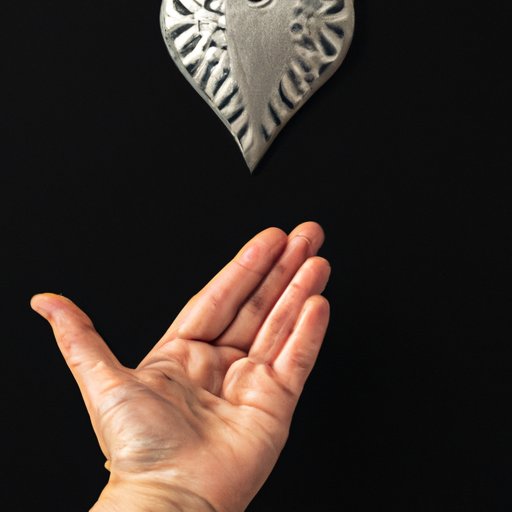Introduction
Forgiveness is something that everyone struggles with at some point in their life. Whether it is forgiving a friend, family member, or colleague, it can be challenging and emotionally draining. This article aims to help people learn how to let go of past hurt, resentment, and anger by providing tips and exercises that can facilitate the process of forgiveness. It is intended for anyone who is struggling to let go of a grudge and wants to learn how to forgive.
Understanding the Importance of Forgiveness
Holding grudges can have severe consequences for our emotional and mental well-being. It can lead to stress, anxiety, and depression. When we hold onto a grudge, it becomes difficult to move forward in life, and we become trapped in a cycle of negativity. Forgiveness is essential because it helps us to let go of the past, move on, and live a more fulfilling life. Moreover, studies have shown that forgiveness can enhance our physical health, reduce stress levels, and improve our relationships with others.
Accepting Responsibility
It is crucial to accept your part in any conflict, no matter how big or small it may be. By acknowledging your role in the situation, you can take control of your emotions and begin to move forward. Accepting responsibility is the first step towards forgiveness, and it requires a great deal of humility and self-reflection. For example, if you were involved in an argument with a friend, you could admit that you were wrong and apologize for your behavior. This can open up the door to forgiveness and facilitate the healing process.
Empathy-building Exercises
Building empathy towards the person who has hurt you can be challenging, but it is a crucial step in the forgiveness process. Empathy is the ability to put yourself in another person’s shoes and understand how they may be feeling. It helps to develop a deeper understanding of the person, their motives, and their actions. There are several empathy-building exercises you can try, such as journaling, meditating, and putting yourself in their position. For example, you can write a letter from their perspective or try to imagine how you would feel if you were in their shoes. These exercises can help to create a deeper understanding and make the forgiveness process more manageable.
The Power of Apology
Sincere apologies can be a vital step towards forgiveness. An apology can demonstrate that the offender is remorseful for their actions and that they recognize the pain they have caused. In some cases, apologies can help restore relationships that have been broken. Effective apologies should be sincere and not include any justifications or excuses for the behavior. It is also essential to make amends for your actions, such as offering to make reparations or providing assistance in any way possible.
Forgiving Yourself
Forgiving yourself is perhaps the most challenging part of the forgiveness journey. We can be our harshest critics, and it can be easy to fall into a cycle of guilt and shame. However, self-forgiveness is an essential part of the process and can help to release us from the burden of our mistakes. Engaging in self-compassion exercises, such as positive self-talk or practicing mindfulness, can be helpful in learning how to forgive oneself. Forgiving oneself can also lead to a more profound understanding and empathy towards others.
Moving Forward
Letting go of the past can be a difficult process, but it is crucial for moving forward. It is essential to focus on the present moment and to start living in the present. By letting go of past hurt and resentment, we can open ourselves up to new opportunities and experiences. There are several ways to initiate a new chapter in life after forgiveness. For example, one can try new hobbies, meet new people, or travel to new places. These experiences can help to create a more fulfilling life and help to promote positive thinking and behaviors.
Conclusion
Forgiveness is a powerful tool that can help us to let go of past hurt and resentment. By accepting responsibility, building empathy, apologizing sincerely, and forgiving oneself, we can move towards a more fulfilling life. Letting go of past grievances is not easy, but it is necessary for promoting positive mental and emotional well-being. Let us encourage ourselves to learn how to forgive by trying the exercises and tips provided in this article.
